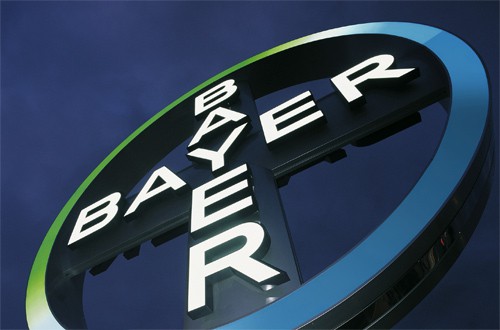
Bayer and Orion have put some meat on the bones of their phase 3 trial of darolutamide in non-metastatic castration-resistant prostate cancer (CRPC), as they prepare to take on rival therapies from Johnson & Johnson and Pfizer/Astellas.
The two partners released top-line results from the ARAMIS trial of darolutamide last year, but have now presented the data in full at the ASCO Genitourinary (GU) symposium and published the study in the New England Journal of Medicine.
The verdict of the 1,509-patient trial is that darolutamide added to androgen deprivation therapy (ADT) achieved a 59% reduction in the risk of metastasis or death versus ADT plus placebo, with a median metastasis-free survival of 40.4 months compared to 18.4 months, respectively.
There was also a trend towards an increase in overall survival of 29% versus placebo, and patients will be monitored in the coming months to see if this develops into a statistically significant improvement.
Bayer and Orion say they intend to discuss possible filings for darolutamide with regulators on the strength of the trial data and suggest that – if approved – it could become a €1bn-plus product.
Darolutamide is facing some entrenched, heavyweight rivals in the market for anti-androgen prostate cancer therapies, which is currently led by Johnson & Johnson with Zytiga (abiraterone acetate) and next-generation drug Erleada (apalutamide) and Pfizer/Astellas’ Xtandi (enzalutamide).
Astellas said in its latest results statement that Xtandi made around $2.2bn in the first nine months of fiscal 2018/19, while J&J banked around $3.5bn from Zytiga in calendar 2018. J&J isn’t breaking out Erleada sales yet in its results after its approval in the US for non-metastatic CRPC last year, but has predicted it could grow into a $1bn-plus product. It got a green light in Europe last month.
Bayer and Orion think that despite the competition, darolutamide has a profile that means it can win market share quickly if approved. They point to a benign side-effect profile, attributed to a novel structure that means that unlike enzalutamide and apalutamide it is unable to cross the blood-brain barrier and lacks activity at GABA type A receptors.
Current androgen antagonists are associated with a range of side effects including fractures, falls, seizures, and weight loss, but in ARAMIS darolutamide seemed to exhibit placebo-like tolerability, with only fatigue occurring significantly more often than control. Bayer reckons that tolerability is critical in non-metastatic CRPC because patients may be on therapy for years,
The big question is whether that will be enough to differentiate the drug from its rivals, particularly as generic competition is looming for Zytiga in the US after a patent defeat earlier this year removed exclusivity extending out to 2027.
Around 10-20% of prostate cancer cases are castration-resistant, and up to 16% of these patients show no evidence that the cancer has spread at the time of the castration-resistant diagnosis.
Non-metastatic CRPC still a largely untapped area, but analysts think that it could develop into a multibillion-dollar market – provided that the MFS data generated for these drugs is matched by OS improvements, which will help secure reimbursement.
Orion and Bayer have another phase 3 trial on the go in patients with metastatic hormone-sensitive prostate cancer (mHSPC) – called ARASENS – that is expected to generate results in 2022. Pfizer and Astellas have just reported positive results from the ARCHES trial of Xtandi in this patient group at ASCO GU.




